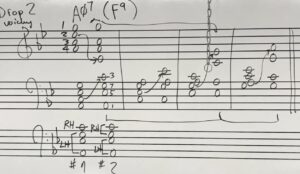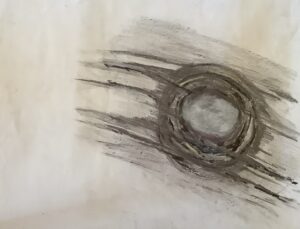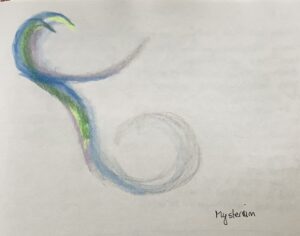BUSINESS, noun, 1. a person’s regular occupation, profession, or trade. 2. the practice of making one’s living by engaging in commerce.
Music is a business as well as an art form. My compositions are like children; having them is one thing, launching them into the world, another. This takes networking, using social media, learning how to represent myself, and finding others who will support and represent my work.
Break In.
If the front door is not open (because of race, gender , religion, education, or just being at the wrong place at the wrong time), break in through the back door or window. No matter how you get in, you are in.
, religion, education, or just being at the wrong place at the wrong time), break in through the back door or window. No matter how you get in, you are in.
Accept and build on small opportunities.
Compose music for anyone. Find ensembles in your community and compose for them. Have your work performed. Learn. Compose more. Better yet, start your own ensemble.
Remember your self worth.
Understand copyright, publishing, and recording rights – the ways your music can generate income. Have an attorney or someone in the business look at any contract before signing it.
Create your own working sabbatical.
When I started my career, I worked many jobs to support myself. Using the latte-principal (saving the $5 cost of a latte a day), I saved for ten ye ars. When I got a commission from the Kronos Quartet, that and my savings allowed me to launch into being able to compose full time.
ars. When I got a commission from the Kronos Quartet, that and my savings allowed me to launch into being able to compose full time.
Develop a personal language to expresses your artistic process.
Over the years I learned to share my feelings and emotions that accompany composing music creating a deeper connection with the public at a human level.
Communicate about your work.
Taking the time to use all the tools to get the word out about your work is just part of being an artist. Learn how to write grants, find commissions, create consortiums and promote yourself.
It is about the relationship.
Creating a career as a composer is like fundraising – it is not about the money. Networking is key – going to concerts, introducing yourself, creating relationships, builds connection for future business or collaborations, etc.
Make ‘thank you’ a key part of your interaction with others.
I dedicate one day each week to say ‘thank you’ to anyone I have had contact with. Expressing appreciation is so important, even when rejected. And, by the way, at the rehearsal of your music, be awesome to the performers.
Advocate and join.
Show up at concerts and conferences. Support other composers and musicians as colleagues and friends. Get involved with advocacy organizations! Speak out against ageism, sexism, cronyism where ever you see it.
 Share your joy.
Share your joy.
Communicate your love of the work with others. I find sharing rather than teaching, motivating rather than lecturing, including rather than talking to, brings others into the process on an equal standing.
Abundance rather that scarcity.
At the core of my artistic endeavor is a sense of abundance and possibility. There is always a new piece to compose, and a new opportunity to explore. And if I don’t hear or see one, I set out to sniff it out – using all the tools I have honed over the life time. There is always something more.

 performance, harmony, counterpoint, set-theory, analysis and orchestration before pencil hits the paper. The canon maintains that understanding music history is an essential, and without it the artist gropes in the dark in a vain attempt to reinvent the wheel. The canon implies an order – one must do A before B. It reinforces that personal creativity is not trustworthy unless it is in an old container: it is not credible without context. In other words, one must be coupled to the past to make authentic, groundbreaking art.
performance, harmony, counterpoint, set-theory, analysis and orchestration before pencil hits the paper. The canon maintains that understanding music history is an essential, and without it the artist gropes in the dark in a vain attempt to reinvent the wheel. The canon implies an order – one must do A before B. It reinforces that personal creativity is not trustworthy unless it is in an old container: it is not credible without context. In other words, one must be coupled to the past to make authentic, groundbreaking art. a personal ownership that grows out of doing. I support experiencing writing music before too much comparison. In the initial stage, I want everyone to compose the way they painted in kindergarten. Hardly knowing how to hold a paint brush, they work with abandon and in full confidence of their creative abilities.
a personal ownership that grows out of doing. I support experiencing writing music before too much comparison. In the initial stage, I want everyone to compose the way they painted in kindergarten. Hardly knowing how to hold a paint brush, they work with abandon and in full confidence of their creative abilities. August 4
August 4
 March 31
March 31
